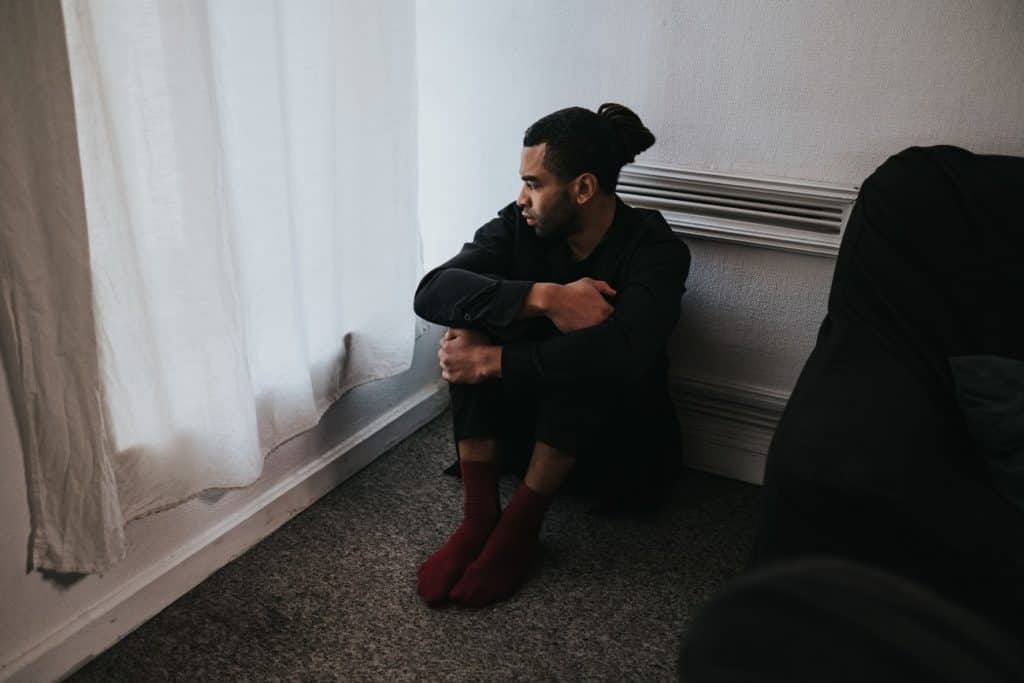It is difficult to imagine not being able to leave one’s home. Sadly, some people have an irrational fear of leaving their homes or entering a crowded place. This fear is a mental anxiety disorder named agoraphobia. People with agoraphobia may also fear occupying places that make them feel helpless or trapped and, consequently, will avoid those places and situations.
According to the National Institute of Mental Health, approximately 1.3% of U.S. adults experience agoraphobia in their lifetime. This article will discuss the meaning of agoraphobia and its relationship to other anxiety disorders, specifically Social Anxiety Disorder. We will also address other mental health disorders that may present concurrently with agoraphobia.
The Difference Between Agoraphobia and Social Anxiety Disorder
Although symptoms are somewhat similar, agoraphobia and social anxiety disorders differ. The two disorders are sometimes mistaken for each other, but a distinction needs to be made. Someone with social anxiety may also avoid social situations but for different reasons. Where agoraphobics avoid situations and places they feel they cannot escape, a person with social anxiety avoids situations because of the interaction.
Both conditions disrupt a person’s daily life, and anyone with symptoms of either disorder should seek professional help. Also, both anxiety disorders may experience panic disorder concurrently or before the onset of anxiety. An individual with panic disorder may turn to substance use as a coping mechanism, so quickly addressing the initial problem is crucial.
Symptoms of Agoraphobia
If a person faces a potential situation where their fears surface, the following symptoms may appear. However, this is not a definitive list.
As you may notice, symptoms are physical but not listed as fear. Fear and a person’s upbringing, environment, and individual experiences in coping with life can be contributing factors causing physical symptoms.
- Heart rate increases
- Breathing difficulty
- Sweating
- Shaking
- Nausea
- Chest pain
- Dizziness or headache
Symptoms of Social Anxiety
People with a social anxiety disorder fear embarrassing themselves, rejecting, and offending anyone. Following are some of the more common symptoms of social anxiety disorder. The symptoms are basic fear and avoidance. Some examples include:
- Fearful of judgment
- Avoidance of situations where they may be embarrassed
- Fear of humiliation
- The fear of interacting with strangers
- Fear of being the center of attention
- Overanalyzing themselves and finding flaws
- Intense fear in a social situation
- Fears of dying during interaction with others
- Intensely worried and occupied with what others think of them
Treatment for Agoraphobia and Social Anxiety Disorder
Treatments are imperative for anxiety, but a diagnosis must come first and can be difficult to pinpoint. Diagnosing social anxiety disorder and agoraphobia will encompass a physical exam, an interview with a healthcare provider, and a discussion of the symptoms.
Other tests may ensue as required. Treatment is usually in the form of an inclusive treatment plan designed specifically for an individual’s needs. It may include medications such as antidepressants and anti-anxiety medicine. Talk therapy is an integral part of treatment and comes in many forms; one of the more effective is cognitive-behavioral therapy (CBT).
As reflected above, the treatment of both disorders is very similar and effective. The time through treatment and recovery varies widely, however. Every individual acts uniquely to their plight, and personal factors such as family influence, environment, core values, physical well-being, and other mental health concerns add to the complexity and timeliness of recovery. Support from family and friends throughout the journey is paramount.
Notwithstanding the treatments mentioned above, fighting anxiety in any form is not easy because while it is happening to you, it seems like the antithesis of maintaining control. Hence a composite of therapies in the treatment plan is fully warranted. Full recovery may take a long time, and a few people will deal with some symptoms throughout their lives.
Making the most of your life each minute will enhance your treatment and recovery and provide an easier path to your goal of happiness and mental well-being. Boost your program by practicing loving, self-care, and being good to your body and mind through healthy eating, good sleep, meditation, and exercise. Presenting your best self daily will be the best defense toward an amazing quality of life.
When to Seek Help
Anyone exhibiting symptoms of agoraphobia or social anxiety disorder needs to seek help through their healthcare physician, therapist, or mental health care professional. Also, if you believe your loved one has anxiety and it seems out of their control, speak with them about seeking help.
If they are not amenable to doing so right away, give them pertinent information for guidance, then check back with them later and try again. You and your kindness may be the lifeline they need to reclaim their lives. We all need one another in this big, wonderful world. Be well.
SoCal Mental Health is committed to your overall mental health and well-being. We are dedicated to treating mental health challenges and addiction. Your mental health is a priority we take very seriously. Anxiety and depression often accompany other co-occurring disorders, such as agoraphobia, and we can help. Our mental health programs are specifically designed for your individual needs. We create the most effective plan for each unique person and their needs, and our staff follows through from diagnosis to treatment and recovery. Our professional staff is here to meet your needs for mental health, substance abuse, recovery, and relapse prevention. You never need to go through this alone. Call us at (888) 312-0219 for help.












